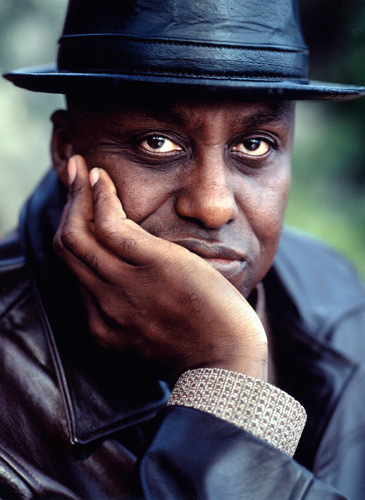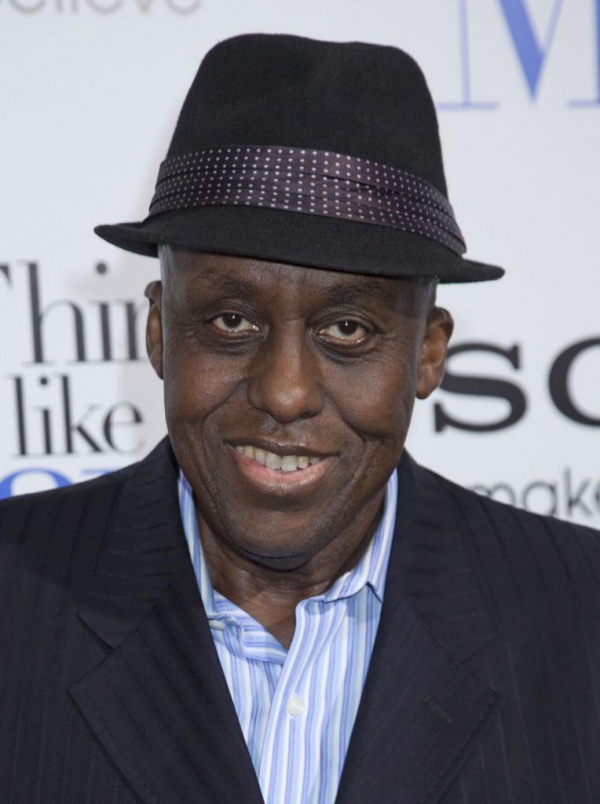
Bill Duke is one of America’s most prolific actors and directors as he continues to capture the topics that challenge people to think consciously on social issues. His latest project, Light Girls, is a documentary film and book as a follow-up to his Dark Girls film based on the serious problem of skin color discrimination within certain ethnic cultures — specifically the African American community.
Having a distinguished and long career that has brought him from his hometown of Poughkeepsie, New York to studying drama at Boston University and continuing further instruction at New York University’s Tisch School of the Arts and the American Film Institute, Duke launched his professional career on Broadway. Among some of his more notable roles were the imposing, conscious character Abdullah Mohammed Akbar in the movie Car Wash, as well prominent roles in Menace II Society, Exit Wounds, X Men: The Last Stand and Get Rich or Die Tryin‘. But it is his talents as a director that continue to keep him on speed dial with many production companies and film studios.
Duke is considered one of the most sought-after directors to capture and bring stories to life regardless of race, gender or cultural definitions; he is the actor’s director and the director’s director. His directorial work has spanned from the critically acclaimed television series Hill Street Blues and Miami Vice to feature films such as A Rage in Harlem, Hoodlum, Deep Cover, and Sister Act 2: Back in the Habit along with the PBS broadcast documentary Prince Among Slaves.
Duke was in Chicago to showcase his films Light Girls and Dark Girls along with participating in very in-depth panel discussions about the topics during the Black Women’s Expo last month.
CD: What was the motivation behind doing the films Light Girls and Dark Girls? It has been something that has been a taboo topic in the African American community. What made you feel it was necessary to tell this story?
BD: Based on my own experience as a young man coming up in Poughkeepsie, NY being dark complexioned and being tall, it was difficult. Luckily I had parents that re-enforced my worth to me. Early on, it was not easy for my sister, my mother and my niece. Some of the things they and other young girls went through from the community. Also, seeing the ‘colorism’ in our community today, it said to me, ‘This needs to be given a voice.’ As a result, I put together the two films and a book.
CD: Are you looking to do a third film as a follow up to Light Girls and Dark Girls?
BD: I’ve exhausted this territory. The next film is going to be called What is a Man? Is there a distinction between being born male and becoming a man? Many people feel there isn’t a distinction; you’re born male so you’re a man. In African tradition, that was not true. At 12 or 16 years old, you were given a spear and sent into the jungle. If you came back, there was a male ceremony with all other men who accepted you into the tribe. There’s a distinction between having a child, fathering a child and providing for that child. We want to examine that phenomenon. Is there such a thing called ‘manhood’? Are there manhood responsibilities? What are those responsibilities? Have they changed? Have they evolved? Also, what is the impact on those children of men that have several women who have borne their children?
CD: What motivates you to give back and mentor young people?
BD: It’s not our obligation, it’s our responsibility as Black men. The suffering of our young men due to lack of exposure to values and opportunities. The solution to that problem can’t be placed upon the shoulders of a system that has ignored them for many years.
We’re playing checkers in a chess game. Society is chess. We’re waiting for the chess players to come and teach us how to play chess. Those of us who learn how to play chess have to teach other people how to play chess. You can’t compete if you don’t have the information, knowledge and techniques for competition. So, it turns into complaints, violence and frustration. It’s a little frustrating and disturbing.
CD: Do young actors and filmmakers of color need to know how to play chess in order to compete and survive in Hollywood?
If you come to Hollywood and you are dreaming of having aspirations without understanding what is called ‘show business,’ you may get very, very lucky. That’s not what I see; I see the majority Black, Hispanic and Asians coming to Hollywood end up in positions that never lead them to their career. It’s an extremely competitive, rejection business. People hide the pain of rejection by dealing with the symptom which is usually through drugs, alcohol, partying or other activities that don’t deal with the root of the problem. Right now, the kids I see coming to Hollywood have no clue. They think we’re in the film and television business. We’re in the ‘media business.’
Duke immediately returns to the Windy City to begin filming, “Blaxicans” from mid-April to the end of May.
“It’s about a Mexican family and Black family where the young Black man falls in love with the Mexican girl. They get married and have a baby and she’s a “Blaxican.” The problem is that the father of the Black family hates Mexicans and the father of the Mexican family hates Black people. It’s a conflict between those two cultures while the wife, child and husband love each other and love their families. It’s how they resolve these issues; it’s a dramedy.”
It was just recently announced that Duke would be working on the biopic of the gospel legend Mahalia Jackson and filming in Chicago. Currently, the director is in discussions with potential investors to bring the gospel singer’s celebrated life to the big screen.
Duke reveals his admiration, “Not only was she close friends with Dr. Martin Luther King, Jr., but she encouraged him to do the “I Have a Dream” speech at the march. She was one of the first brilliant Black business women in this country. Although, it was a male dominated culture and society, she let no man tell her what to do. She stood up for women’s rights and her rights. Her story should be celebrated. It’s not a Black story. It’s a story of a woman — a human being — that grew up in the rural South with nothing. She believed in God enough that her faith brought her through circumstances that the average person could not survive. You can feel through her music.”
Twitter: @globalmixx
